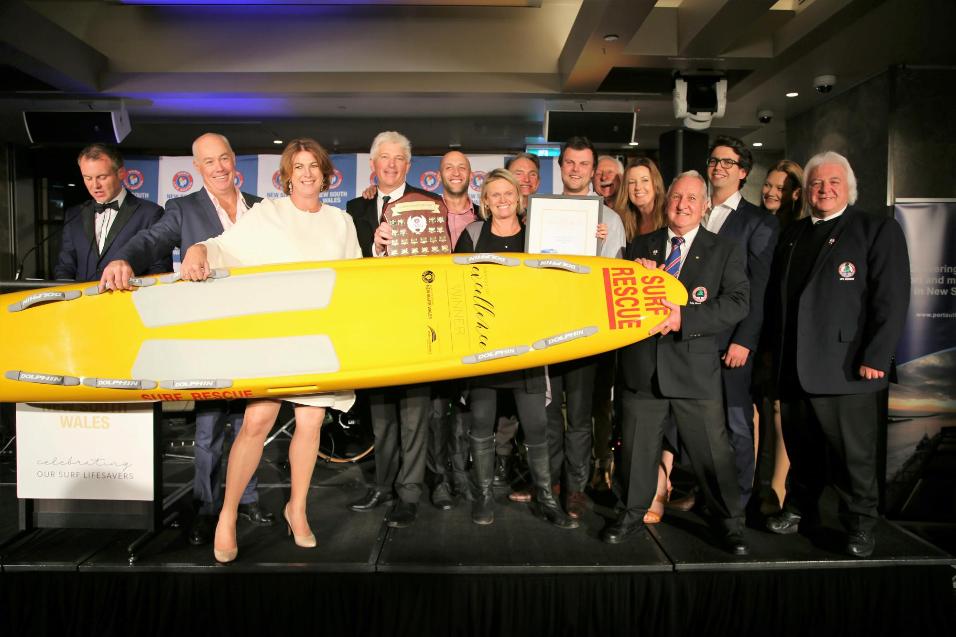September 23 - 29, 2018: Issue 377
Ashley Cardiff
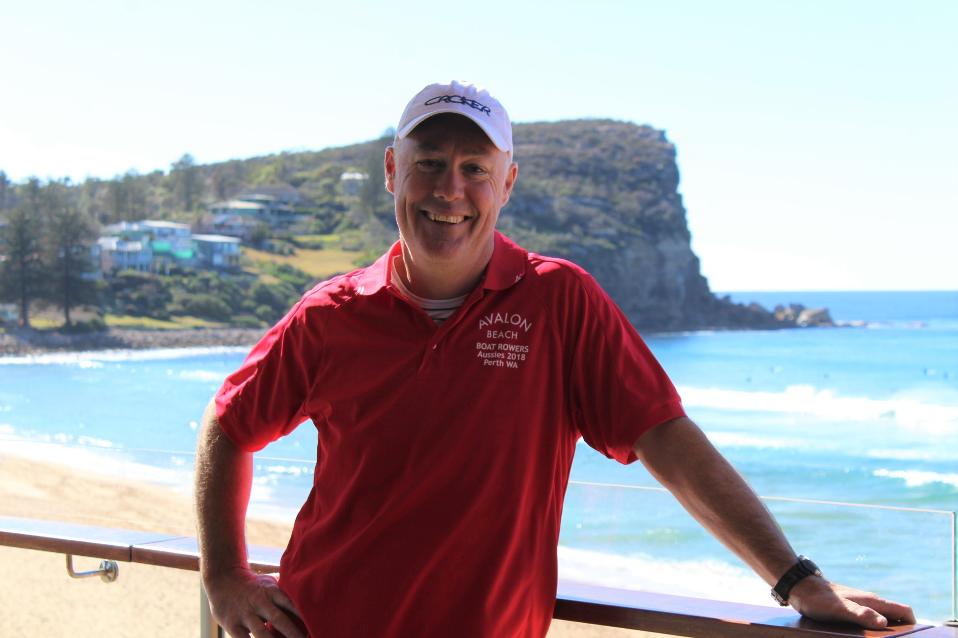
Ashley has decades in the surf life saving movement, starting out as a Nipper at Dee Why. He has a passion for surf boats and is a crew member of the very successful 'Towballs' crew. His dad is a legend and Life Member at Dee Why SLSC, his children have been in Nippers at Avalon Beach SLSC - three generations of Cardiffs will be on or near the beach this Season and all of them would ask visitors to please, swim between the flags:
When and where were you born?
In Manly Hospital in 1972.
Where did you grow up?
Down at Dee Why, mainly at Dee Why beach, in fact with my younger brother, we spent pretty much our whole time at that south end of Dee Why beach. We’d surf off the point, all that kind of stuff. Mum and dad had a house just two streets up in Boronia street going over towards north Curly, which is still there now, 50 years later.
My dad grew up in Dee Why, he’s been there for around 80 years. He was born in Eugowra in western NSW and came to Dee Why when he was 2, he’s 82 now. Mum is English.
Dad, Barry Cardiff, or 'Cholly' Cardiff as he’s called, was Sports Master at St Augustine’s for 30 years. He’s also a Life Member at Dee Why SLSC. Dad also worked as a Lifeguard for Warringah Council at Dee Why and went over to Lifeguard in the U.K. Mum was a stewardess with BEA. Dad met here while he was over in the U.K.
Dad was one of the first Australians to go surfing over at Hawaii in 1963, he knew Midget and all those guys that went over there in the early days.
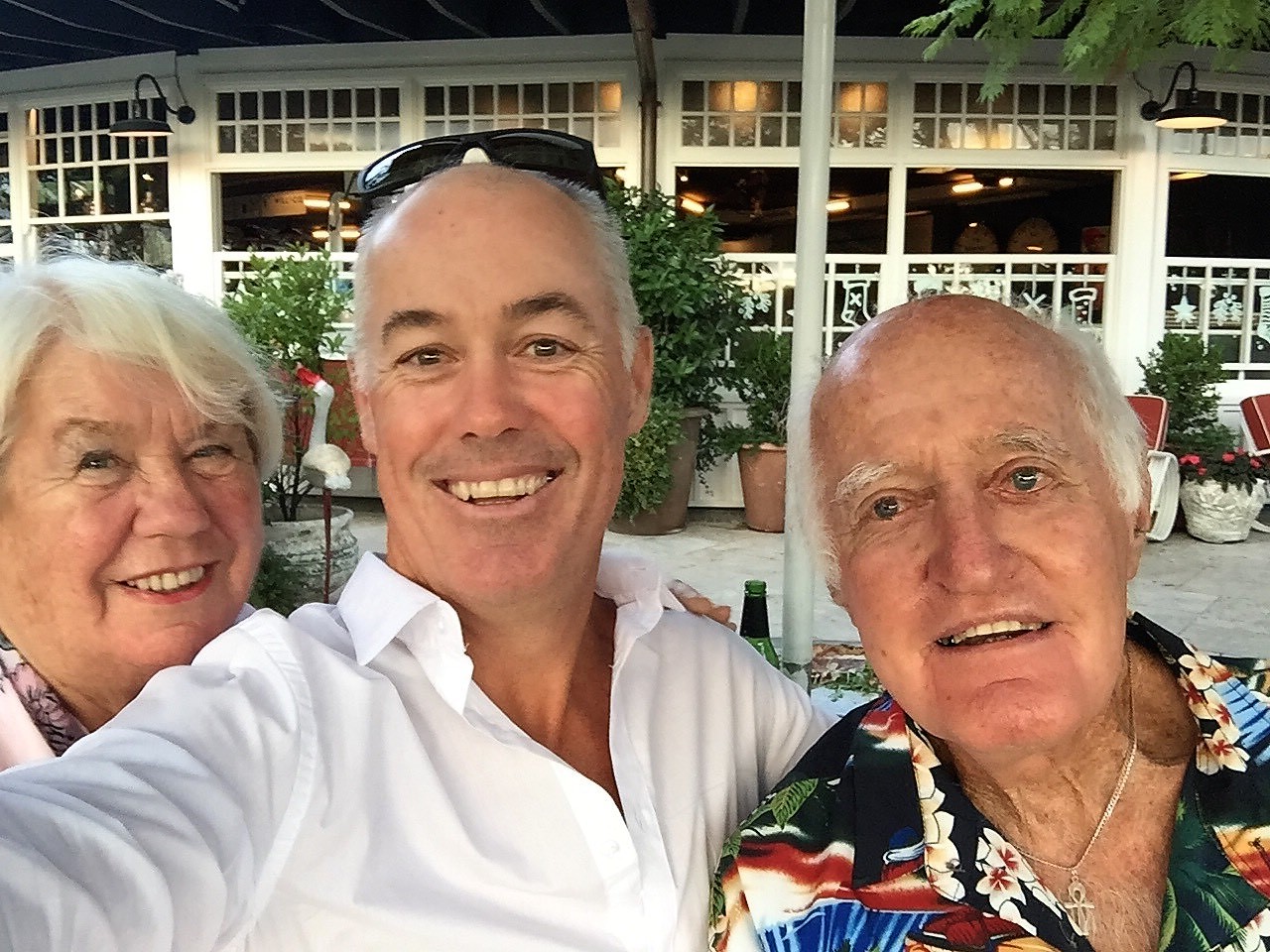
Ashley with his mum and dad
Did you and your brother join Dee Why SLSC too then?
My brother went on the surfing fraternity side, he was more interested in that. I joined the club and did my Qualifying Certificate when I was 13, around 1984, and did my Bronze a year later, 1985. Dad had been in the club for all those years prior to me and as an active member. He came back into the club when I started and took on the role of Race Secretary which meant he ran all the Sunday morning club events; the swim, the board paddle etc.
What were you doing in the club?
I did my Patrols of course. I started off doing the board paddling and went into a few other competitive sports – I tried R&R for a couple of years, where I won a few medals. Went into boards and then into skis’. Then a few of my mates said we should organise a crew and get into rowing the surf boats. We did it ad-hoc for a year or two and then got a bit more serious. We won the Australian Championship in 1994 and almost won it again the next year in 1995. We had a few good years there.
I took on some minor Committee positions as well. It’s a pretty good club and I still have mates that I knocked around with down there who are friends now.
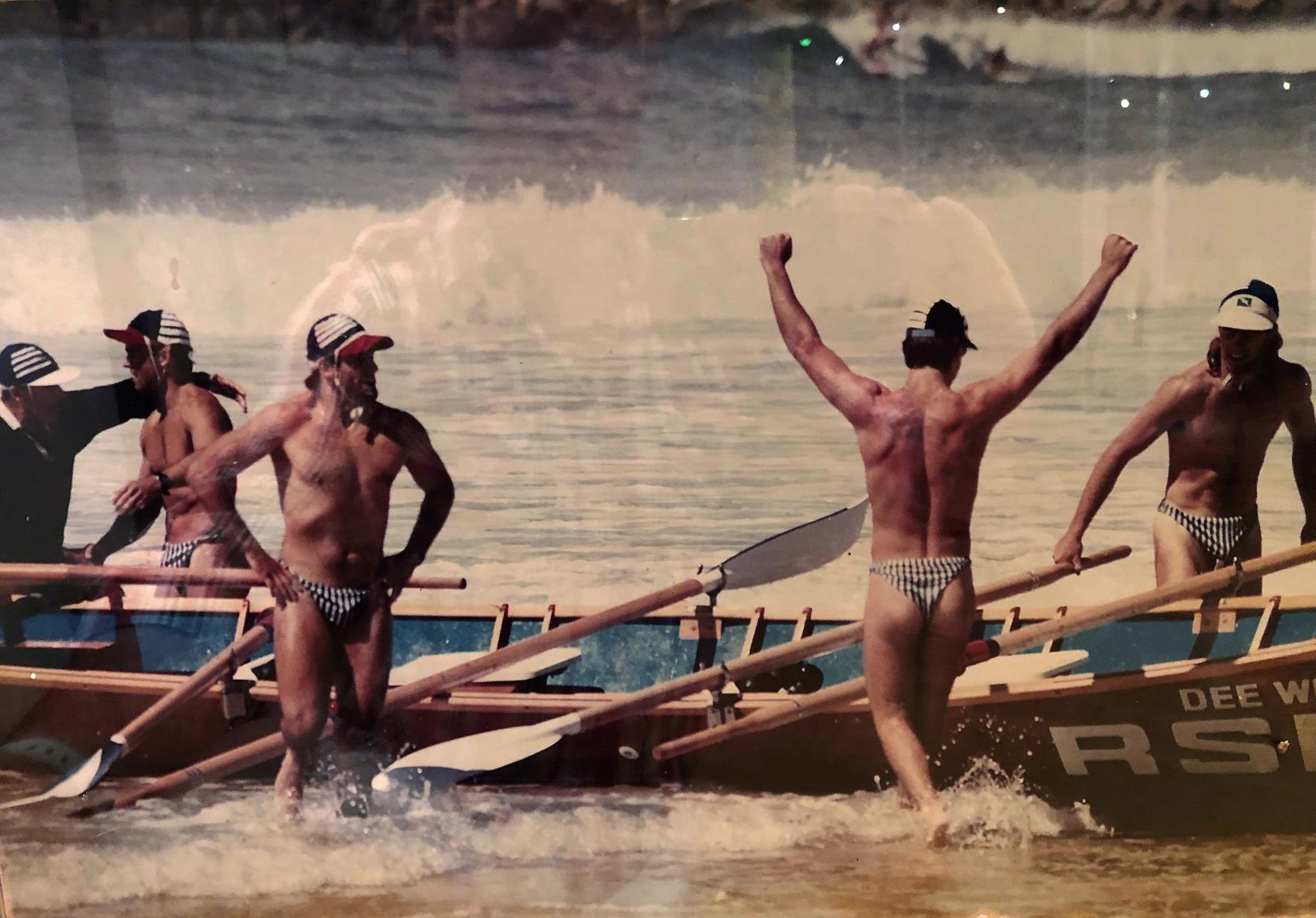
Dee Why champions
Where did you go to school?
For primary I went to St Kevins at Dee Why then on to St. Pauls’ at Manly up next to the hospital. It used to be called Christian Brothers the first year or two when I started. Brothers used to be down behind the Manly Pacific where St Marys is – Year 5 and Year 6 was down there and then High School was up next to the hospital.
What did you want to do when you left school?
I didn’t really know. I didn’t do too much for a while and then dad said ‘if you’re going to live in the house you better get a job’ – pretty much drew the line.
I ended up working at the Post Office at Dee Why for a few years, just selling stamps behind the counter. I used to ride my bike and go home for lunch. It was good for training as well as we were still so close to the beach – I’d knock off at 5 o’clock and be down the beach by quarter past.
After working there for a few years I went overseas for a year and a bit. When I came back I went back into the Post Office and did some rounds work. I then secured an apprenticeship as a Plumber. One of my mates who I was rowing with at that time was a Plumber. I was on holidays from the Post Office and asked if he had any extra work, just labouring, that kind of thing. He said to come up and the boss there said he’d put me through an apprenticeship. I did this up at Forestville and then worked there for 7 or 8 years and then worked for another construction company doing plumbing work.
I joined the Water Board around 13 years ago, as Sydney Water as it’s now called. They’re pretty good to work for. I did some years there in maintenance and now I work as an Asset Inspector which is making sure they’re all working properly or attending to problems as and of they occur – such as trees falling down on them etc..
How did you get involved with Avalon Beach SLSC?
My wife, Melinda Akehurst, is an Avalon Beach SLSC Member; she rowed in one of Rick Millar’s first female crews way back. While I was still down at Dee Why there was a Sweep who had dropped out so I took that on and a few of the girls at DY were looking for new members. Up at Avalon a few girls had also moved on and Melinda was looking for people to row with so she came down to Dee Why for a couple of years to fill in and be with a girls crew and keep rowing. So we met there.
Having that connection, once we were living back up at Avalon and our kids joined as Nippers it was a no-brainer for us to be part of Avalon Beach SLSC too.
On the boat rowing side of things Mel was asked by Rick to come back in and have a row when he was short for someone, as happens. When Mel was inspired to get back into it again I too thought I would as well and got involved again. There’s a real good culture among the boaties, pretty awesome to be involved in. at Avalon we have gone from 3 crews to 14 crews last Season and 15 crews went to the Nationals in Perth.
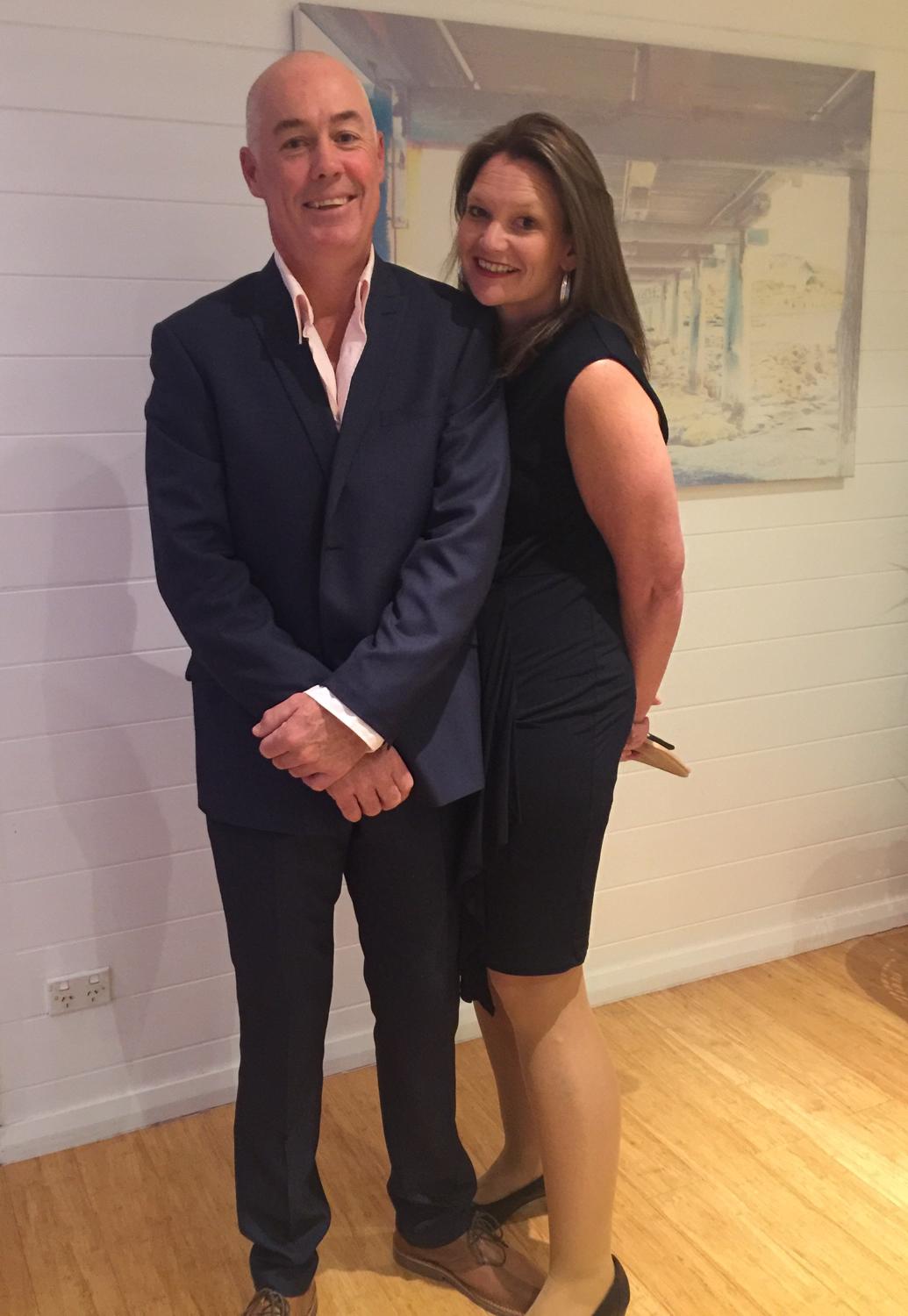
Melinda and Ashley
This Season you have taken on the Presidency – a very big job – how did that happen?
Having been in Avalon Beach SLSC for a fair few years I thought it would be good to take on a bigger role. Richard Cole has obviously steered the club into a great position during his last few years as President, most recently being named Club of the Year at the Surf Life Saving NSW 2018 Awards of Excellence – so he’s stood down at a time when he’s left the club in great stead but of course, it’s also a bit daunting to step into those shoes and try to keep it at that level.
There’s some great events each season the club runs, the Lion Island Challenge that’s coming up in a few weeks, the Carols at the Beach on the 8th of December, and then obviously the Ocean Swims which we’ve pushed back until the end of the Season.
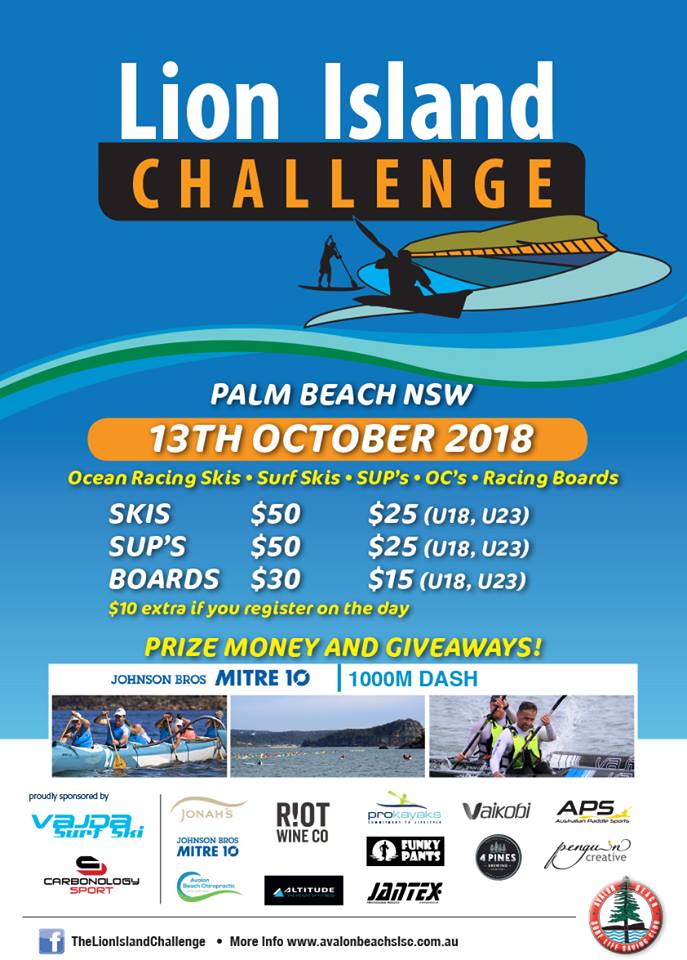
My role is really overseeing the many aspects of our club. We have so many great people in charge or working in each area and having a direct impact on that core business within the business. There’s our Junior Activities people, members like Mike Stanley-Jones who is super-energetic in the Youth Development, Tom Waters who does so much as the Juniors President – you really have them looking after those aspects or portfolios within the club and excelling in doing so. Having people like this is actually pretty inspiring for the rest of us. My job is to have an overview of the lot and ensure we’re providing each area with as much support as we can.
At Avalon Beach SLSC there’s around 80 Committee members – we have the Executive Committee and then people who have taken on all those other committee positions. People liken it to running a small to medium sized business.
Funds raised through events go back into running the club; obviously we have a lot of maintenance, equipment that may need to be renewed or regenerated.
Avalon was also one of the first clubs to get a de-fib at this end of the peninsula. There currently is a focus between Avalon-Whale Beach and Palm Beach where we have placed them outside the clubhouses so that beyond the bends within five or ten minutes, if something happens, you have access to a de-fib.
We’ve also just installed one at the Avalon Recreation Centre which the surf club is going to maintain and manage. This is now available to the public. So they’re like another lifesaver!
Is there anything new you’d like to introduce or develop?
Going back to what I did with my father, some of the best days of my life were some of those Sunday mornings events at the club and fostering more of that within-club. We have Tim Hixson already looking after the Sunday morning swim so I think adding in things like a board relay for example would be good. The focus here is to bring in people who aren’t necessarily wanting to get involved at that competitive carnival level but still get involved in having some fun while upping their skills. This can also be a way of bringing people at different levels within the club together. For example, within a relay team you could have a 13 year old with an open rower and a masters competitor. It’s a way in which everyone can meet everyone and put a name to a face and this is one way to do it, to really foster the connections within our community. We could probably throw a few sausages on the BBQ as part of that. For the people on Patrol we’d ask them to come up and join in as they finish, they could have a sausage sandwich for lunch – it’s a way of keeping and fostering the community within the club.
We have the bar open on a Sunday afternoon now of course, and that’s open to the public. We have some great music put on once a month, also open to everyone and a great way to find out more about the club, meet some members, as well as enjoy a great view with great tunes.
The other aspect I’d like to focus on is fostering more members learning more skills in Beach Management; as a Patrol Captain we don’t want five people with all that responsibility, we’d rather have 15 and share all that load. So it would be great to have more Beach Management people, IRB Drivers, Spinal, First Aid – it would be great to have as many people as we can in all those areas.
Avalon Beach SLSC has always had a strong focus on connection with the community – what is the current focus for members and the club as a whole?
The club is making a concerted effort to keep addressing the loss of people through suicide, particularly younger members of our community. The club has been directly impacted by this and will keep on making certain we make space available for community groups such as OneEighty and the Avalon Youth Hub.
We’ve also recently had the 24 Hour Row to support OneEighty and Gotcha4Life that raised 15 thousand to help them do what they do. We really want anyone who needs to reach out to do so, just as they would in any other situation and support those groups that are there waiting to connect them, to whatever they need.
You have a few decades clocked up in the Surf Life Saving movement – what’s the best thing about this to you?
We had a few years off in the middle there when our 3 kids came along and were young, but around 35 years now all up.
To me it’s a great social way to connect with your community. Where else can you join a club, do something for the community, meet like-minded people within the community. You also have the healthy lifestyle part of it too; you’re keeping fit. Every year you’re doing your Proficiency, so you’re making sure you’re up to date with what you’re learning as well.
What are you looking forward to this Summer?
I’m looking forward to rowing, I row as part of the Towballs crew
Towballs?
Because we all have no hair and we look like Towballs – that’s where the name came from.
We had some good success last season, we won the ASRL down at Eloura during the races there. So I’m looking forward to getting back into the rowing.
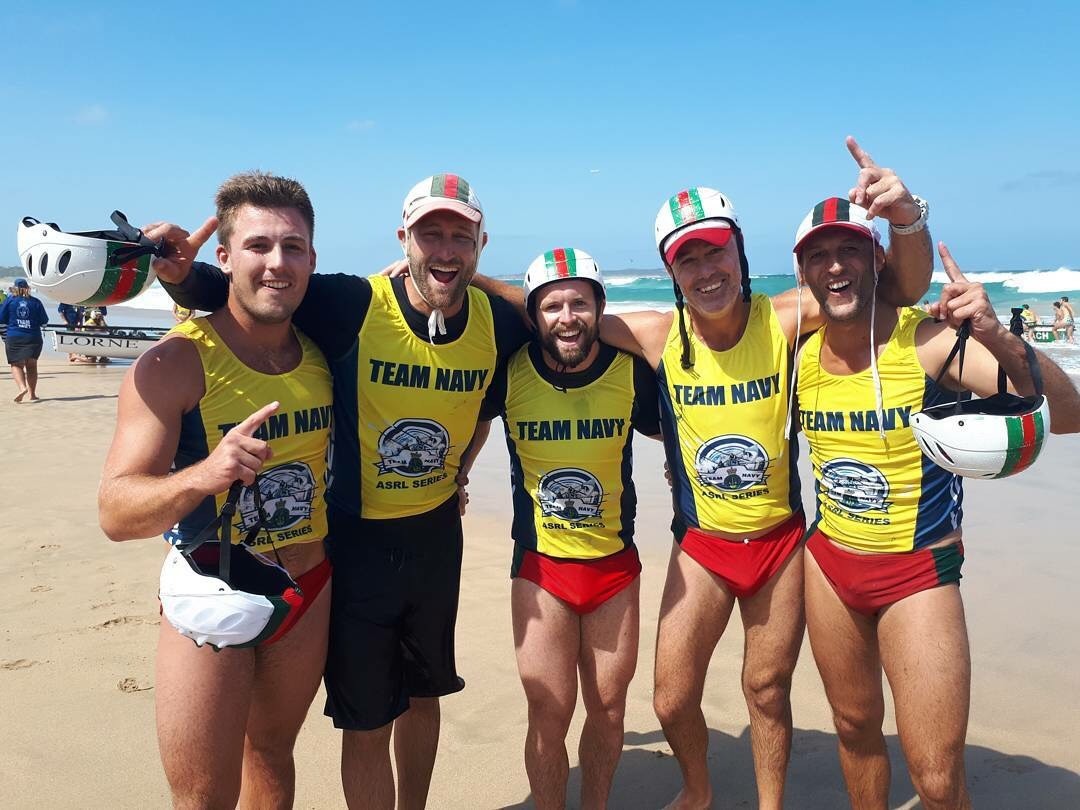
We also have some great events coming up too of course, so I’ll be working to make sure the crews in charge of them are supported as well as working to make sure they run smoothly.
My wife Melinda is co-Club Captain with Peter Carter so they’ve been busily trying to get all the Patrol Rosters done for the Season start on the 29th of September.
We have around 15 Patrols at Avalon – some of them are dedicated boat patrols as obviously we have carnivals on certain days, so they try and align that so we’re not all rostered on on different days and do a pretty good job at that. So there are a lot of Patrols on the sand too over the Season.
What message would you give to visitors to Avalon Beach this Season?
Please swim between the flags. This will keep you as safe as you can be.
If you don’t understand the beach or are not confident in the water, then look to the lifesavers on the weekends, and lifeguards, during the week, for advice.
At Avalon Beach we do have a few initiatives where we do have an outpost Patrol. For example, if the Patrol tent is down the south end then we’ll have a couple of people up the north end where that rip runs out against the rocks, or vice versa if the Patrol tent is up at the north end then we’ll have someone down near the pool area.
We also have Patrols rostered on when we have the Carols so when you have people mixing alcohol and food with potentially wanting to have a swim we are managing that kind of risk as well.
We’re always looking out for people.
But really – if you’re not confident at the beach, look to the lifesavers and please swim between the yellow and red flags. We are seeing a lot more people coming to Avalon Beach so it would be great if they could help us to help keep them safe.
What are your favourite places in Pittwater and why?
I like going down to Clareville, we row down there a lot.
You can’t beat North Avalon – there’s nothing better than coming home from work on a Summer’s day and grabbing the boardies and surf board and walking down the road for a surf.
What is your ‘motto for life’ or a favourite phrase that you try to live by?
I try to live by ‘live for the day’.
Animals live for the moment where humans can dwell on the past or try and plan so much for the future that they forget to enjoy where they are – right here, right now. We do have to look ahead to see where we’re going obviously but really there’s nothing more important then the moment we’re in at any one time.
Ashley's Dad:
Its a long, rough swim when you lose your board
Will you be one of the thousands of Australian teenagers enjoying surf riding this summer? Well, then, can you swim -really swim? For instance, can you swim several hundred yards through a rough surf? You should be able to - even champions fall off sometimes!
SO many teenagers are buying surf-boards before they are strong enough swimmers and some can hardly swim a stroke - it's frightening and unbelievable, too," said Barry Cardiff, 22, a well-known Sydney surfboard rider, who's a beach inspector at Dee Why, on Sydney's northside.
"The official surf season only opened in early October and already we've had to rescue at least a dozen riders at Dee Why, most in difficulties because they weren't competent swimmers," he said.
"Due to good fortune there have been few fatalities among this group, but that may change in the future.
"Before teens even think of buying a board (or parents plan one as a present) they should be really confident swimmers," Barry said
"I think that means they can swim at least a quarter of a mile, or eight laps of a 50-metre swimming-pool -one day they might need to do so."
If you missed out on learning to swim properly as a child, it's not too late to learn now. Most towns and suburbs have "Learn-to-swim-free" classes in the summer and it's best to inquire about them at the nearest pool.
Surfboard riding may look easy, but it's a strenuous sport and would-be-riders should make sure they're in top physical form before they attempt to join riders "out the back"-beyond the line of breakers where surfers catch the unbroken shoots.
"One weekday recently, I noticed a group of boys, around 17 and 18, unload their obviously new boards from a car and head for the surf without even stopping to have a close look at the sea, which was quite rough and treacherous," Barry said.
"As the only inspector at the beach - and the lifesavers don't patrol on week-days-I didn't fancy a mass rescue, so I called to one of the older boys-'Are you sure you can handle yourself in this surf?'
"He just laughed and said something like: 'Don't be silly, of course I can,' and indignantly pushed his board into the surf.
"I should have known he wouldn't have admitted the truth in front of his friends, because a few minutes later, after losing his board and a frantic battle in the choppy surf, he struggled up the beach, looking very relieved to have made it.
"Girls seem to be more sensible and will admit they can't swim. I've never seen femlins (girl-riders) in surfs they can't handle - they seem to know the theory that the best surf is not quantity but quality.
"The sport takes a fair bit of skill and a lot of practice to conquer and you should know a lot about the surf.
"Surf sense is something you learn gradually and the best way is to ask the locals questions about the beach where you surf, before you go in the water.
"I've probably made board-riding seem like it's dangerous and treacherous but it's not at all.
"It's a marvellous, healthy sport for young Australians and quite safe as long as the rider is honest with himself and realises his qualifications in the surf.
"Some boys might feel 'chicken' if they don't brave the big waves in front of their friends," Barry said. "But they'd look even sillier if they had to be rescued by a lifesaver."
Boards, when expertly handled, are ideal for rescue work.
"Riders carry out many rescues," Barry said. "They often double riders who have lost their boards to the beach, and they even paddle out to body surfers in distress when lifesavers or surf boats can't get to them in time.
Barry has surfed at famous spots in California, Mexico, and Hawaii, where he saw several rescues by riders at Sunset Beach, which has some of the biggest surfs in the world.
"Boys and their boards are dropped from helicopters to rescue surfers in distress in surfs too big for any boats to move out from the beach," he said.
TIPS ON SURF SAFETY
* One wise thing to remember, even if you're a good swimmer, is never to let go your board, if you can possibly hang on to it. Many new riders see a big wave coming their way and they immediately let go their boards. Then they have to swim through the surf to the beach.
* Learn to do the "Eskimo-roll." When a huge wave heads your way paddle directly into it, turning "turtle"-rolling under the board with arms and legs wrapped around it when the wave is on top of you. Pull the nose (front) of board down toward your head and there's less tendency for it to be dragged away from you.
* Beginners should stay close to the locals, who know the surf well, its rips, tides, and currents. It's safer than surfing off somewhere on your own, and if you get into difficulties there's always someone around to help. It's a long, rough swim when you lose your board(1964, November 25). The Australian Women's Weekly (1933 - 1982), p. 99. Retrieved from http://nla.gov.au/nla.news-article48517842
